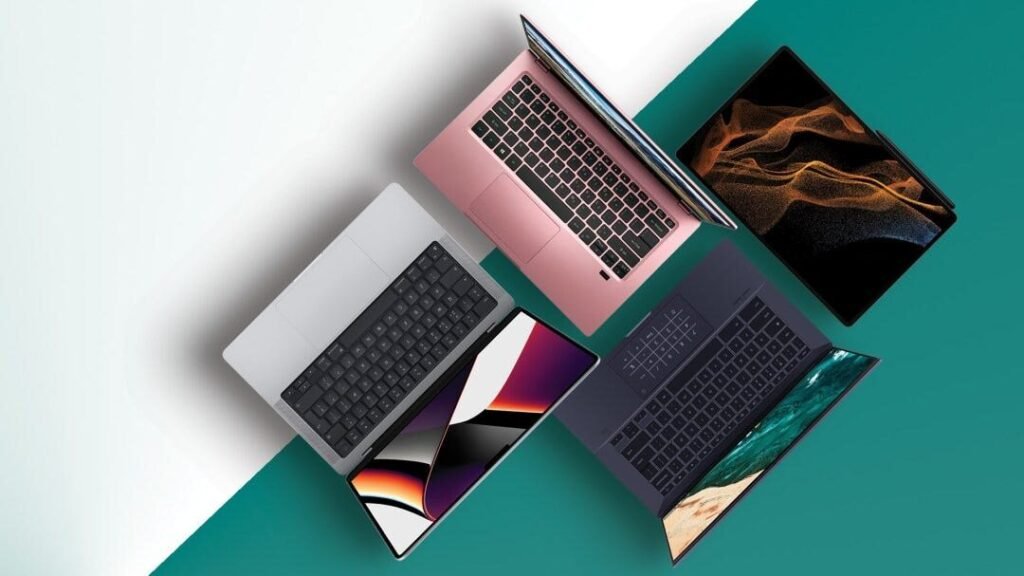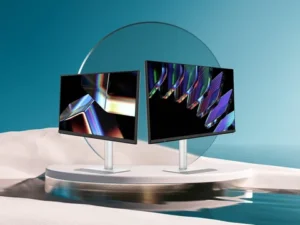In a world ever increasingly reliant on technology, opting for the right laptop can significantly impact and improve your productivity, efficiency, entertainment, and in fact general digital experience. And making a choice, from a myriad of available options. This choice could range from simple ultra books to complex laptops for gaming.
We will explore what to look for when buying or choosing a laptop. While focusing on the latest features to look out for in, we will guide you to pick just the best laptop for you.

Comprehension of Purpose
When choosing a laptop, it is pertinent to understand first, your specific requirements. Various users have different needs, therefore it’s crucial to identify what exactly you expect or want from your laptop.
Purposes for getting a laptop may include the following;
- General Purpose; Which may include doing a research work, browsing and writing.
- Creative Use; This is specially for creative designers like the graphic designers, video editors, and photographers that require powerful hardware for editing.
- Educational Purposes; Students with lots of school work, projects and assignment to carry out would need a portable, long-lasting battery life, and good performing laptop for studying.
- Gaming and Animation; With heavy software like Blender and Maya in view for gaming and animation, gamers would need high-performance hardware to handle sculpting, simulating and rendering.
- For Work Purpose; As an office worker, freelancer or even a business owner you need to get your work done quickly and efficiently. The need for a laptop here cannot be overemphasized.
We will be using the above purview to find the perfect Laptop to fit your unique interest
Factors to Consider When Choosing Your Laptop
1. Performance Matters
Performance is a critical factor in choosing a laptop. It is determined by several components, including the processor (CPU), memory (RAM), storage, and graphics card (GPU).
- Processor (CPU): Please note that the CPU is the brain of your laptop. An Intel Core i3 or AMD Ryzen 3 is a good choice for a general use. , You can also consider an Intel Core i5/i7 or AMD Ryzen 5/7 for professional and creative work . Gamers should look for high-end CPUs like Intel Core i9 or AMD Ryzen 9. Now, it is important to note that new generation of processors is faster than the previous generation, even at the same chip frequency
- Memory (RAM): RAM affects how smoothly your laptop runs multiple applications as it’s the system’s short term memory. For general use, 8GB of RAM is adequate. Professionals and gamers should opt for 16GB or more, while creative professionals may need 32GB or higher. This is because, the more RAM you have, the better your laptop can handle multitasking and memory-intensive applications.
- Graphics Card (GPU): Integrated graphics are fine for general use and light gaming. The GPU is actually dedicated to rendering graphics. Dedicated GPUs from NVIDIA or AMD are essential for gaming, video editing, and 3D rendering. Look for at least an NVIDIA GTX 1660 or AMD Radeon RX 5600M for gaming, and higher-end options like RTX 3070 or RX 6800M for heavy graphics work.

2. Display
The display is a very crucial aspect, and especially for those who spend lots of time on their laptops.
- Size: Laptop screens typically range from 13 to 17 inches. However, smaller screens (13-14 inches) are more portable, while larger screens (15-17 inches) would offer better visibility, clarity and workspace.
- Resolution: Display resolution determines the clarity and level of detail you’ll see on your screen. Higher resolution provides sharper images. Full HD (1920×1080) is standard, but 4K (3840×2160) is ideal for creative professionals and gamers.
- Panel Type: IPS panels offer better color accuracy and viewing angles compared to TN panels. OLED displays provide even better colors and contrast but are more expensive.
- Refresh Rate: Gamers should look for higher refresh rates (120Hz, 144Hz, or 240Hz) for a smoother gameplay. A higher refresh rate results in smoother motion and reduces motion blur.
3. Portability and Battery Life
Portability is a significant consideration for users who travel frequently or need to carry their laptop around.
- Weight: Ultrabooks and laptops designed for portability usually weigh between 2 to 4 pounds. Heavier laptops (5 pounds or more) often offer better performance but are less portable.
- Battery Life: Look for laptops that offer at least 8-10 hours of battery life for all-day use. Ultrabooks and laptops with energy-efficient components tend to have longer battery life.
4. Build Quality and Durability
The build quality and durability of a laptop are essential for longevity and a premium feel.
- Materials: Laptops made from aluminum or magnesium alloy are generally more durable than those made from plastic.
- Keyboard and Touchpad: Ensure the keyboard is comfortable and the touchpad is responsive. Backlit keyboards are beneficial for low-light conditions.
- Hinges: Robust hinges ensure that the laptop screen remains stable and can withstand frequent opening and closing.
5. Connectivity and Ports
Consider the types and number of ports available on the laptop.
- USB Ports: Multiple USB ports (including USB-C) are essential for connecting peripherals. So, ensure your laptop has enough USB ports for your peripherals.
- HDMI/DisplayPort: Necessary for connecting to external monitors.
- SD Card Reader: Useful for photographers and videographers.
- Ethernet Port: Important for reliable wired internet connections, especially in professional settings.
- Thunderbolt: Thunderbolt ports offer even faster data transfer speeds. This makes them however ideal for creative professionals. Thunderbolt 3 and Thunderbolt 4 are the latest versions.
6. Operating System
Choose an operating system that aligns with your preferences and requirements.
- Windows: Offers a wide range of software compatibility and is suitable for most users.
- macOS: Known for its stability and integration with other Apple products. Ideal for creative professionals.
- Linux: Preferred by developers and tech enthusiasts for its flexibility and open-source nature.

Popular Laptop Categories
Understanding popular laptop categories can help you narrow down your choices.
- Ultrabooks: These are thin, light, and powerful laptops designed for portability and performance. Examples include the Dell XPS 13, MacBook Air, and HP Spectre x360.
- Gaming Laptops: Equipped with high-end GPUs and CPUs to handle the latest games. Examples include the ASUS ROG Zephyrus, Alienware m15, and MSI GS66 Stealth.
- 2-in-1 Laptops: These devices function as both laptops and tablets, offering versatility with touchscreens and detachable or 360-degree hinges. Examples include the Microsoft Surface Pro, Lenovo Yoga, and HP Envy x360.
- Business Laptops: Designed for professionals, these laptops offer robust security features, durability, and long battery life. Examples include the Lenovo ThinkPad X1 Carbon, Dell Latitude, and HP EliteBook.
- Budget Laptops: Affordable options for basic tasks, suitable for students and casual users. Examples include the Acer Aspire 5, Lenovo IdeaPad 3, and ASUS VivoBook.
Tips for Making the Final Decision
- Set a Budget: Determine how much you’re willing to spend. Higher budgets typically offer better performance and features, but there are excellent options at every price point.
- Read Reviews: Research and read reviews from reputable sources to understand the strengths and weaknesses of different models.
- Check Warranty and Support: Consider the warranty period and the manufacturer’s customer support. This is crucial for long-term peace of mind.really
- Try Before You Buy: If possible, visit a store to test the laptop’s keyboard, touchpad, and overall build quality.
- Future-Proofing: Think about your future needs. Investing a bit more now can save you from needing an upgrade sooner.
Conclusion
So you see, I have now equipped you to choose the laptop that perfectly matches your needs and preferences. The quest for the ideal laptop no longer seems daunting, as you now have the tools to navigate the sea of options confidently. Don’t forget that your laptop is a partner in your journey towards productivity and entertainment. So take your time, do your research, and make an informed decision that will change and enhance your digital life.
So, whether you’re a creative professional demanding high performance, a student needing portability and battery life, or a gamer searching for the ultimate gaming laptop, this guide is your ultimate companion on the path to the perfect machine.




